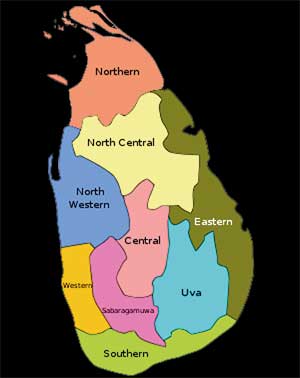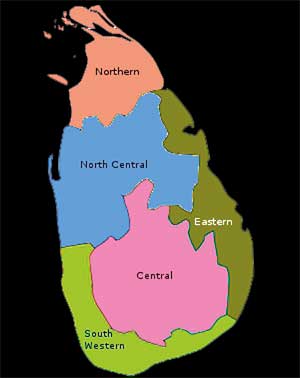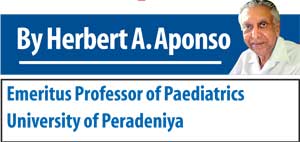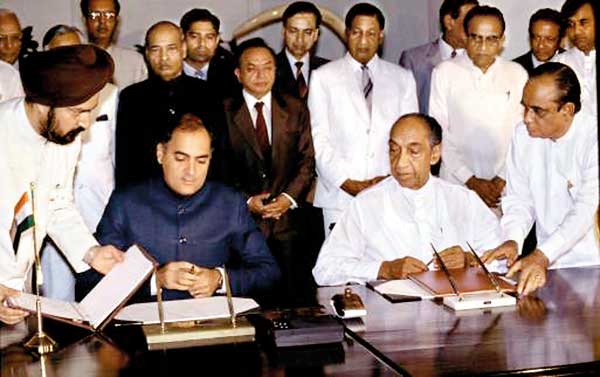SUGGESTIONS AND RECOMMENDATIONS
|
Considerations:
1. It is of the utmost importance to preserve the unitary status of the country with the peaceful co-existence of the three groups referred to above.
2. A repeal of the 13th Amendment is likely to aggravate the problem, both nationally and internationally
 3. It has now become obligatory to grant devolution of power to the North and the East 3. It has now become obligatory to grant devolution of power to the North and the East
4. While the demand for the devolution of governance at provincial level is primarily for political reasons in the Northern and the Eastern Provinces, the same does not apply to the other provinces, where there were no such demands.
5 .However, it would now be difficult, or almost impossible, to abolish the present system completely.
6. It is not obligatory or sacrosanct, or even a compelling need, to continue the division of the country into the existing nine provinces.
7. There is no historical, legal or other impediment or detriment to the peaceful co-existence of small provinces or states together with large ones(vide in USA, the state of California has a population of 37 m; Texas, 22m; while Rhode Island has a population of a mere 80,000).
8. It is noted that the Union Cabinet of India has approved the division of the state of Andra Pradesh to create Telangana as its 29th state. This means that India acknowledges the right of a country to divide or combine its constituent states according to the prevailing needs. Thus there should be no objection from India or for that matter from any other country, if Sri Lanka considers it necessary to demerge the Northern and Eastern provinces that were temporarily merged under the 13th Amendment.
9. Statesmanship by our leaders, as opposed to personal political power, is the dire need for reconciliation and compromise.
10. The expenditure on a Provincial Council is enormous, and a reduction of the number of Provinces, could be utilised for much needed projects such as bridges and roads in the underserved rural areas.
11. It is on these considerations, and for these reasons, that it is being suggested that the country be divided into five provinces, as shown below
In this connection note the Article in the Accord; Chapter XVIIA - 154A (3):
Notwithstanding anything in the preceding visions of this Article, Parliament may, by or under any law provide for two or three Provinces to form one administrative unit adjoining with one elected Provincial Council, one Governor, one Chief Minister and one Board of Ministers..
It is further suggested that strategic areas and their environs listed in the Reserved List should include, in addition to Colombo Port and Sri Jayawardenapura, all points of entry/exit, such as Katunayake Airport, Hambantota Port, Mattala Airport, Trincomalee Port, Oruvil Port, Palaly Airport, Kankesanthurai Port.
Language Policy
This has been an important issue in the conflict between the North and the South. The following suggestions are made in this connection:
a ) Totally reject the concepts of ‘Sinhala Only’ and ‘Tamil Also’ ) Totally reject the concepts of ‘Sinhala Only’ and ‘Tamil Also’
b) Accept and implement in toto the late Dr Colvin R. de Silva’s pithy dictum, “One language, two nations; two languages, one nation” ; add “English Also”
c) Take meaningful steps to implement and ensure that both Sinhala and Tamil are given equal status in all parts of the country, together with English as an unifying language for both national and international purposes; this has special reference to all public places and public documents
d) Give special credit for passes in all these three languages at the GCE ‘O’ Level examination, after a reasonable period.
Concluding Remarks
If by any sad chance, the Tamils succeed in their demand for a state of their own, a large number of Tamils may be obliged to move out of their present places of residence – including assets, and other interests - to the so-called homelands. Have those who are clamouring for full autonomy considered all these implications, or do they believe in a Utopian state of forming a Tamil speaking country together with the Tamils of India?
If the funds, especially the billions of dollars that are now being spent on a “new kind of misguided struggle for Independence”, can be diverted to develop the North and the East, Sri Lanka would soon qualify to be a place with a high “happiness index”, for even the Tamil Diaspora to consider coming back to the land and culture of their forefathers, instead of being armchair critics, enjoying a comfortable life in foreign lands.
It is difficult, very difficult, to forgive and forget the ravages of a bloody conflict of 30 years. Hatred cannot be conquered by hatred. May it be said that herein is a challenge to statesmen and the right-thinking Diaspora, on both sides of the divide, to enter into a spirit of give and take (reconciliation), and make Sri Lanka a place where “her sons and daughters” could live in “peace within its borders”, and live with dignity and pride among the nations of the world.
“For the Healing of the nations, Lord, we pray with one accord, For a just and equal sharing Of the things that earth affords.
To a life of love in action Help us rise and pledge our word
All that kills abundant living, Let it from the earth be banned. Pride of status, race, or schooling, Dogmas that obscure your plan. In our common quest for justice, May we hallow life’s span”
Let our goal be a ‘UNITED DEMOCRATIC SOCIALIST REPUBLIC OF SRI LANKA’
|
|
 History
History.jpg) The Sinhalese make up 74.9% of the population (according to the 2012 census) and are concentrated in the densely populated south-west and central parts of the Island. The Muslims, who descended from Arab traders that settled in Sri Lanka, form the third largest ethnic group at 9.2% of the population.
The Sinhalese make up 74.9% of the population (according to the 2012 census) and are concentrated in the densely populated south-west and central parts of the Island. The Muslims, who descended from Arab traders that settled in Sri Lanka, form the third largest ethnic group at 9.2% of the population.
.jpg) The Sinhalese make up 74.9% of the population (according to the 2012 census) and are concentrated in the densely populated south-west and central parts of the Island. The Muslims, who descended from Arab traders that settled in Sri Lanka, form the third largest ethnic group at 9.2% of the population.
The Sinhalese make up 74.9% of the population (according to the 2012 census) and are concentrated in the densely populated south-west and central parts of the Island. The Muslims, who descended from Arab traders that settled in Sri Lanka, form the third largest ethnic group at 9.2% of the population..jpg)
